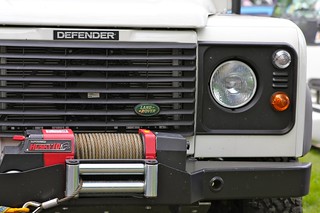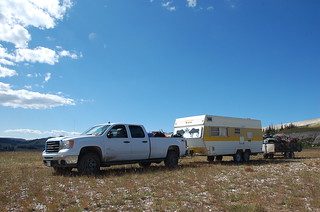If you’ve ever rigged up a trailer and headed down the road with high hopes, only to hear a creak, a crack or feel a sudden problem in the back, you know it can be one of the most stressful kinds of car travel stress you can experience. Sometimes it’s a problem with an easy solution, and sometimes it’s an unsolvable problem. No matter which kind of problem it is, one thing is certain: you don’t want to be facing it on the side of the road where you might have to abandon your precious cargo if you don’t have the right parts or tools to fix it. So here are some possible problems you might face and what to do to avoid them.
Weight Load
The first thing to consider is whether your problem is with the trailer or the tow vehicle. The most significant mistake you can make is to try to tow with a tow vehicle that can’t handle the weight of the trailer. It’s called GVWR (gross vehicle weight rating) and it tells you exactly how much your towing vehicle can tow. If you have a 4000 pound truck with a 5000-pound GVWR, you can carry 1000 pounds. Before you say to yourself, “OK, perfect. My towing vehicle can carry 1000 pounds, so I can get a 1000-pound trailer”, stop right there. Make sure that you subtract the cargo weight, the passenger weight of those who will ride in the truck. The best idea is to get a tow vehicle that can pull more than what you anticipate your needs will be.
Balance
If you determine that the problem isn’t with the tow vehicle but with the trailer, check the balance. If the balance of the cargo on the trailer is too far forward, you could have excess weight on the trailer hitch/ball. The faster you go, the harder it becomes for this excess weight for that hitch to hold. Before you set out on the road, get the tongue of the trailer on a heavy duty scale to measure the amount of weight being forced down on the hitch. If it’s more than 10 percent of the entire weight of the cargo / trailer combination, you need to move the cargo farther back on the trailer.
Alignment
A trailer has two axels, and if they aren’t aligned, you’ll be in trouble. Even a little amount of misalignment will force the axels to fight against each other causing the trailer to cause major damage to the tires, joints and overall wear to the trailer. Your trailer may go for a long time without showing its weakness, and then, bam, you could find everything falling apart all at once without warning because of the pressure put on your setup.
If you have some serious towing ahead of you, you want to make sure that you’re anticipating the possible challenges of towing. Everything might look good on the surface, but it’s what’s below the surface that counts the most.
Editor’s Note: Dan Nielson writes articles concerning highway safety and recommends having a mile marker hydraulic winch on your truck for emergencies situations.





